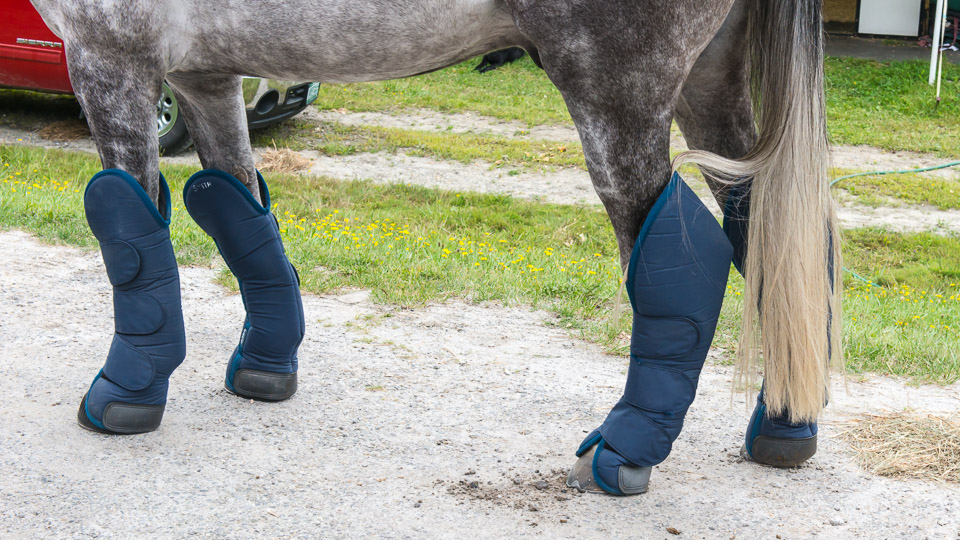
Horse Trailering – Shipping Tips
Shipping horses is fun as long as nothing bad happens. There are two causes of bad things. Either you do something wrong like go too fast around a curve or, more likely, someone or something else (deer, hog, drunk driver) does something wrong where you need to do evasive action.
Here I list what I think is important for all horses shipping any distance.
**CONTINUED IN ARTICLE TAB**
Related material – Sometimes I have a lot of material here that I have written, podcasted, video blogs and other things. They will be listed in this tab.
Use the browser back button or menu to return to the index of topics.
⬇︎ THERE ARE NO IMAGES BELOW ⬇︎ There are no images
Shipping horses is fun as long as nothing bad happens. There are two causes of bad things. Either you do something wrong like go too fast around a curve or, more likely, someone or something else (deer, hog, drunk driver) does something wrong where you need to do evasive action.
Here I list what I think is important for all horses shipping any distance.
Movement – The only problem is that horses freely move because they are not boxes of freight securely tied into position. Not only can they be thrown but their sudden movement can affect the movement of the truck. When you are shipping a dozen horses each at 1000 pounds (450 kg) then 12,000 pounds (5400kg) hits the walls applying a force equal to the mass times the deceleration – which is a lot of force that can cause loss of control.
Leg Protection – There are a few things you can do that might not seem necessary when standing still. The best thing to do is to place shipping bandages or shipping boots on all the legs of all the horses. If possible, remove the shoes. The reason for this is straightforward. Horses instinctively move their legs underneath them when they are unstable due to sudden movement of the trailer. Very often this causes one hoof to land on the other leg just above the coronary band. This causes avulsion (tearing off) of the hoof wall which is painful, very bloody and requires a long time to heal. It may even cause loss of use in some athletic purposes.
However when strong padding comes down the leg and OVER the coronary band down to the ground, hoof avulsions and limb damage are avoided. In my experience there is no reason not to use shipping boots/bandages. Some horses need time to get used to them so plan on training your horses to them before shipping day arrives.
One last important thing about shipping bandages – It doesn’t matter how long the trip is. Just like seatbelts, most accidents occur within 5 miles of the home. Make it a habit to put this protection on for every trip you make. An ounce of prevention is worth a pound of cure – and as a vet I have seen my fair share of trailer accidents.
Water – is needed when trailering for a long period of time especially in warm weather. There are a few things to know.
- Never share a water bucket with strange horses. This can become a source of bacteria for infecting your horse with a bacteria that causes strangles (streptococcus equi). This includes a common water trough at a temporary stop where you unload your horses. Strangles can be dormant until a stress occurs and shipping is often a stress especially for horses new to shipping.
- Always bring a pail with you where you can fill it with water. However some water sources are different tasting than what is at home and will cause some horses not to drink. Think of the sweet well water you have at home compared to the chlorinated or sulfur smelling water from the spigot at the truck stop. I like to bring water from my own farm and some trailers have a water container built in for this purpose. Remember to clean out this container after every use and let it air dry so no mold forms
Medications – Some horses need medications to load. I do not recommend using sedatives as this just makes the horse drunk and doesn’t work on the root cause. Instead I recommend xylazine (Rompun) as this ends the pain in the gut. Yes you heard this right.
It is my belief that most horses that don’t like to load aren’t stupid. They know how they are going to feel once the trailer moves and bumps. It is just like a person getting sick on a plane. They need something to settle their stomach to be able to fly. If needing a quick fix for loading, adding some xylazine will actually make them feel better. For those really afraid I use diazepam or medazolam (both are a controlled substance) with xylazine. It works for about 10 minutes which gets them on the trailer and seems to help them settle in and travel the distance with no further medications.
Along the lines of gut discomfort you can try medications that will ease this such as gastric ulcer and colonic ulcer medications. Be sure to start these several days before shipping. But if you REALLY want to make a difference with these reluctant horses, stop feeding everything except hay, pasture and water for two weeks before shipping. There may be a memory but with some trial shipping before the real shipment date, these horses will become excellent shippers. It is all about the inflamed gut and grain and supplements are the cause of it. eliminate the cause and watch the transformation of your horse. See my nutrition sections for more information on this.
Other medications people have used is adding mineral oil via the feed or by stomach tube to prevent impactions. This I think is unnecessary now that we understand that it is the ulcers from the gut inflammation behind these impactions. If your horse is prone to impactions try the no grain diet and prevent them.
Some give immunostimulant medicines and herbs. I have nothing against this but again, if the gut inflammation is eliminated there will be more immune system cells and molecules available to fight diseases. According to some human research, about 80% of our immune system is located in the gut and if it is busy there then there will be difficulty rising to defend inflammation, bacteria and viruses in other parts of the body.
Difficult loaders – Most horses, if they have difficulties, have trouble loading. On a few occasions they don’t want to come off. Some just fall down in the stall. Let’s start with that one first.
If a horse falls down in the stall try widening the stall or make a box stall. I actually saw this happen. The horse wanted to place her legs wide to stabilize herself but the hooves came up short in the configuration of 3 horses across the width of the trailer. The stall walls had no gap underneath which prevented one horse’s hoof from injuring the horse in the adjacent stall.. Widening the stalls to 2 across solved her problem.
I have had a few horses afraid to unload. Be careful with these as they will launch themselves off the trailer and will wipe you out with serious injury when they do. Be sure to stand off to the side. Several horses were actually backed off as going forward was out of the question. Use caution because they do not know where their legs are landing and they could get hurt.
For difficult loaders you need to have time. Prepare weeks in advance. Eliminate all causes of gut inflammation or add medications for the gut ulcers that may be bothering them. Get them used to the shipping bandages by applying them and then walking around with them while grazing. If they like food, try feeding them in the trailer for weeks before the trip. Avoid sugar and grain treats. Instead, offer a peanut in the shell as a reward for partially or fully loading. Most important of all, learn to control your emotions as the horse is usually reflecting you.
BREATHE!
Equipment – You should have spare halters, extra leads, a water bucket, extra hay, a manure fork and broom, flashlights and a first aid kit with extra bandages. Having a cell phone is not an option but a required piece of equipment. Spare tires and a jack is handy or a service agreement for road service is good.
Cleaning the trailer – If manure is left under the feet of horses it becomes slippery. Keep this area clean and dry. If manure and urine is left in the trailer and never removed it can rot the flooring. There are stories of horses falling through rotten wooden floors and dying horrible deaths. Keep it clean.
Any videos related to this topic will be added here. Stay tuned or comment a request.
- Additional tables
- Links to other in house articles
- Links to outside articles
- Reference material used in developing this topic.
There are no related articles here if you don’t see linked items.


Responses